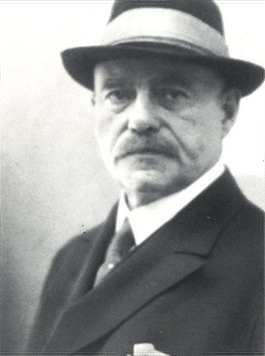
Hermann Sudermann was a German dramatist and novelist.

Rosa Albach-Retty was an Austrian film and stage actress.

Karl Ferdinand Gutzkow was a German writer notable in the Young Germany movement of the mid-19th century.
The Song of Songs is a book of the Hebrew Bible or Old Testament.
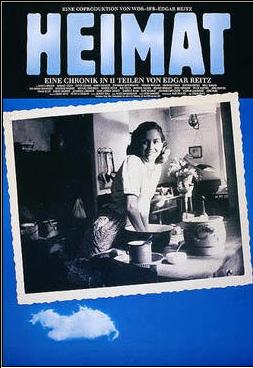
Heimat is a series of films written and directed by Edgar Reitz about life in Germany from the 1840s to 2000 through the eyes of a family from the Hunsrück area of the Rhineland-Palatinate. The family's personal and domestic life is set against the backdrop of wider social and political events. The combined length of the 5 films – broken into 32 episodes – is 59 hours and 32 minutes, making it one of the longest series of feature-length films in cinema history.

Celia Feinman Adler was an American actress, known as the "First Lady of the Yiddish Theatre".
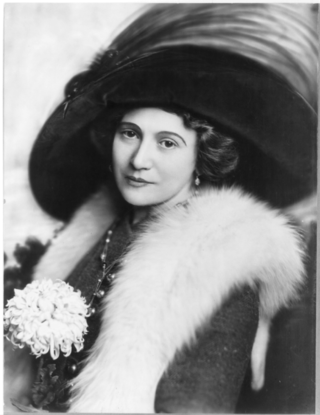
Bertha Kalich was a Ukrainian-Jewish-American actress. Though she was well-established as an entertainer in Eastern Europe, she is best remembered as one of the several "larger-than-life" figures that dominated New York stages during the "Golden Age" of American Yiddish Theatre during the late nineteenth and early twentieth century. Historians estimate that, during her career, Kalich performed more than 125 different roles in seven different languages.

The Threepenny Opera is a 1931 German musical film directed by G. W. Pabst. Produced by Seymour Nebenzal's Nero-Film for Tonbild-Syndikat AG (Tobis), Berlin and Warner Bros. Pictures GmbH, Berlin, the film is loosely based on the 1928 musical theatre success of the same name by Bertolt Brecht and Kurt Weill. As was usual in the early sound film era, Pabst also directed a French language version of the film, L'Opéra de quat'sous, with some variation of plot details. A planned English version went unproduced. The two existing versions were released on home video by The Criterion Collection.

Charles-Edward Amory Winslow was an American bacteriologist and public health expert who was, according to the Encyclopedia of Public Health, "a seminal figure in public health, not only in his own country, the United States, but in the wider Western world."

Karl Schönherr was an Austrian writer of Austrian Heimat themes.
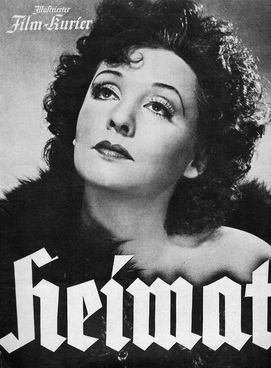
Heimat is a 1938 German historical drama film directed by Carl Froelich and starring Zarah Leander, Heinrich George and Ruth Hellberg. The film's melodramatic storyline portrays the return of a leading singer to her hometown, where her father wishes her to settle down and marry. It is based on the 1893 play Heimat by Hermann Sudermann.
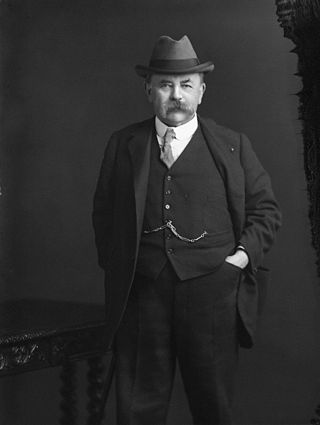
Louis Napoleon Parker was an English dramatist, composer and translator. Parker wrote many plays, developing a reputation for historical works. His 1911 play Disraeli is one of his best known, written as a vehicle for the actor George Arliss who later won an Academy Award for his performance in the 1929 film adaptation, itself based on his earlier 1921 silent film version.
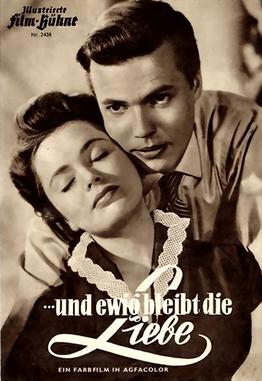
Love is Forever is a 1954 West German drama film directed by Wolfgang Liebeneiner and starring Karlheinz Böhm, Ulla Jacobsson and Ingrid Andree. The film is based on the play Fires of St. John by Hermann Sudermann.
The Excursion to Tilsit is a 1917 collection of short stories or novellas by the German writer Hermann Sudermann. Its German title is Litauische Geschichten, which means "Lithuanian stories". The book consists of four stories set in rural Lithuania in the mid 19th century. It was published in English in 1930, translated by Lewis Galantière.
The Song of Songs is a 1908 novel by the German writer Hermann Sudermann. It was published in English in 1909, translated by Thomas Seltzer. A new translation by Beatrice Marshall was published in 1913.
The Cats' Bridge is an 1889 novel by the German writer Hermann Sudermann. It was published in English in 1898 as Regina, or The Sins of the Fathers, translated by Beatrice Marshall.
Fires of St. John is a 1900 play by the German writer Hermann Sudermann. It is also known as Saint John's Fire. The narrative follows a triangle drama between the daughter of a landed proprietor, her cousin who she is engaged to, and her Gypsy adoptive sister who also is in love with the cousin. The drama culminates on a Saint John's Eve which is loaded with both Christian and pre-Christian symbols. The theme of the play is gratitude and dependence, and the bonds it can create.
The Undying Past is an 1894 novel by the German writer Hermann Sudermann. Its German title is Es war which means "it was". The novel tells the story of how a German man, Leo, returns to his homeland after several years in South America, only to find that Ulrich, his beloved childhood friend, has married a woman with whom Leo has a dark past. The book was published in English in 1906, translated by Beatrice Marshall.
Honour is an 1889 play by the German writer Hermann Sudermann. It tells the story of the conflicts and love affairs between two families, one wealthy and one poor. When the wealthy father has an affair with a daughter in the poor family, her brother challenges the rich man to a duel, only to be laughed off.

Magda is a 1917 American silent drama film directed by Emile Chautard and starring Clara Kimball Young, Alice Gale, and Valda Valkyrien. It is based on the play Heimat by Hermann Sudermann.












